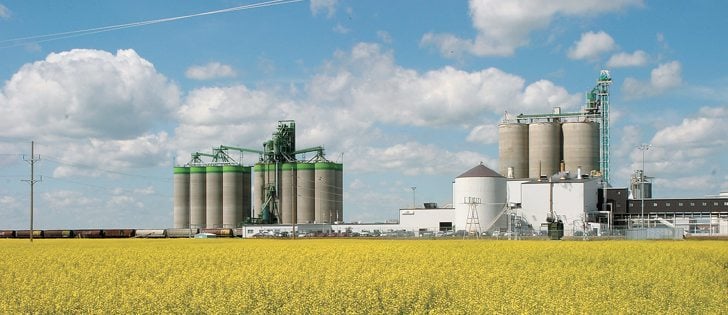Many markets observers might wonder how to reconcile the following three opinions on the state of the global economy.
Economist Nouriel Roubini: “The outlook for the global economy in 2012 is clear, but it isn’t pretty: recession in Europe, anemic growth at best in the United States and a sharp slowdown in China and in most emerging-market economies.”
Standard Chartered Bank chief economist Gerard Lyons: “The east itself is cooling down, but it’s still in pretty good shape. The western economies are still trying to get over the overhang of debt.”
Read Also

Volatile temperatures expected for this winter
DTN is forecasting a lot of temperature variability in the Canadian Prairies this winter. Precipitation should be close to average.
World markets: The S & P 500 U.S. stocks index has been rallying since mid-December and the CRB commodities index has been doing the same.
Why the strength in commodity and crop prices if there is so much grimness in the air?
Most analysts say world markets have become accustomed to the lingering problems of the U.S. economy, still believe a financial meltdown can be averted in Europe and still expect China to keep gobbling up commodities and keep resource prices relatively high, including those for crops.
As long as world markets believe that commodity consumption will carry on, regardless of the world’s problems, there is a basis for strong commodity prices. But that could be cut short if Europe unravels, China hits the ground hard or the U.S. slips back into recession.
Leading central bankers are sounding less relaxed about the world situation than most traders and politicians, and used last week’s World Economic Forum in Davos, Switzerland, to make their points.
“There’s a very strong view of, ‘get on with it. Get this thing done,’ ” said Bank of Canada governor Mark Carney, who has become one of the globe’s most respected central bankers.
U.S. Federal Reserve chair Ben Bernanke reiterated that his institution would keep interest rates at record low levels for another few years. Rather than sounding a warning bell, most markets saw this as a reason to be bullish on commodities, which should increase in value if money is allowed to be more plentiful.
Famed investor and currency expert George Soros warned that the euro currency meltdown could send shockwaves across the globe, something many nations cannot afford to take.
International Monetary Fund director Christine Lagarde preached the same message.
“It’s not just a eurozone crisis. It’s a crisis that could have spillover effects around the world,” she said.
Farmers rely on the overall commodities market, including metals and energy, to set the foundation for crop prices. Some estimates have pegged the non-agricultural commodity complex influence on crop prices at more than 80 percent, so whatever affects overall commodity prices is important.
This year still looks bullish to Barclays Capital, the investment advisory for Barclays Bank of England, despite the world’s problems.
“Commodities markets have started 2012 in encouraging fashion and although the recent rally is vulnerable to setbacks, we expect steady gains in commodity assets across the year,” said Barclays’ Commodities Weekly report.














